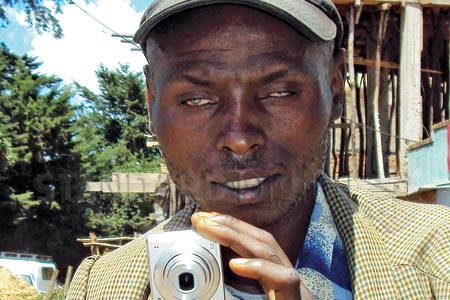×
The Standard e-Paper
Join Thousands Daily
 |
| Though visually impaired, Richard Rono can focus and capture images. (Photo:Nikko Tanui/Standard) |
By NIKKO TANUI
Kericho, Kenya: A sharp eye is one of the most important attributes in photography, since the art requires someone to see what may pass an ordinary observer.







